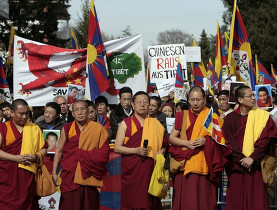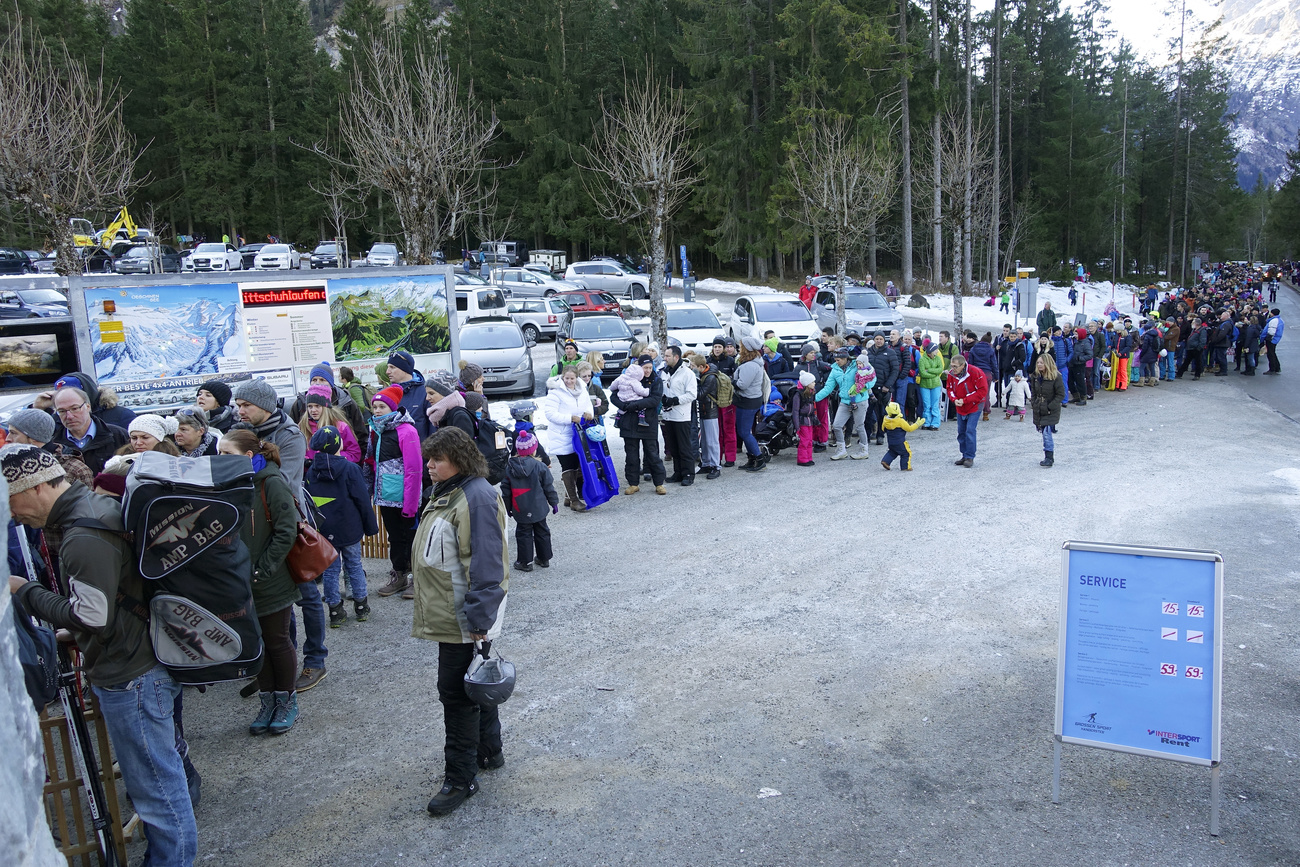Protest takes place in Switzerland over Tibet

Up to 2,000 people have protested over the situation in Tibet outside the Chinese consulate in Zurich. Police used tear gas against some participants.
The Swiss foreign ministry on Saturday again condemned “acts of violence” against demonstrators in Tibet, following clashes that have left around ten people dead.
The unrest between protesters and Chinese security forces in Tibet’s main city, Lhasa, has been the worst in Tibet in two decades.
It erupted on Friday after largely peaceful protests that began on Monday’s anniversary of a 1959 uprising against Chinese rule.
Officials in Tibet have put the number of deaths at ten and have given the protestors until Monday to surrender.
The Tibetan government in exile, which is based in northern India, said that the death toll was higher – around 80 deaths.
On Sunday the Tibetan spiritual leader, the Dalai Lama, said there should
be an international investigation into the crackdown against protests in Tibet.
The Zurich demonstration, called by Tibetan expat associations and also attended by a number of Swiss sympathisers, was aimed at showing opposition to the violence.
Silence and disruption
A minute of silence was held in memory of the victims of the unrest, and prayers were said. Orators called for the Swiss authorities to do more to help free prisoners and to investigate the violence.
Others, such as the head of the parliamentary group for Tibet, Mario Fehr, said that the International Olympic Committee (IOC) should ensure that human rights were respected in China, ahead of the Beijing Olympics this summer.
The demonstration was largely peaceful, although police had to use tear gas to disperse several participants who threw stones and tried to storm the consulate building.
A Zurich police spokesman said that the situation was quickly brought under control and that there were no arrests or injuries.
According to the police, 700 people took part in the demonstration, but organisers put the number at 1,000. Some estimates even had the number as high as 2,000.
Switzerland is home to 3,500 Tibetans, according to 2005 figures. They are said to form the biggest Tibetan community in Europe, and the third largest in the world.
Protests have also been held by Tibetan expat communities in other countries, such as India, Nepal and Australia.
On Saturday the head of the IOC, Jacques Rogge, said that no boycott of the summer games in Beijing was envisaged.
Swiss appeal
The Swiss authorities have also reacted. A foreign ministry official statement – following comments made on Friday – called on the Chinese authorities to refrain from “disproportionate use of force” and to respect human rights, including that of freedom of opinion.
People imprisoned after the clashes should be treated in strict accordance with international human rights norms and those who had demonstrated peacefully should be released, it added.
The foreign ministry said that improvement of the human rights situation in Tibet and a long-term, peaceful solution to the Tibetan question could be made possible through dialogue with the Tibetan community.
swissinfo with agencies
Switzerland is aiming to step up bilateral ties with China. The two countries have a long history of collaboration economically and politically.
Tibet, however, remains a difficult issue. Chinese President Jiang Zemin on a state visit to Bern in 1999 gave former cabinet minister Ruth Dreifuss a dressing down following a pro-Tibetan rally outside parliament.
China also expressed its displeasure when the spiritual leader of Tibet, the Dalai Lama, visited Switzerland in 2005. China does not recognise Tibet’s claim for independence.

In compliance with the JTI standards
More: SWI swissinfo.ch certified by the Journalism Trust Initiative










You can find an overview of ongoing debates with our journalists here . Please join us!
If you want to start a conversation about a topic raised in this article or want to report factual errors, email us at english@swissinfo.ch.